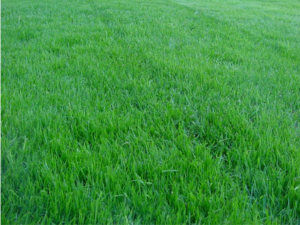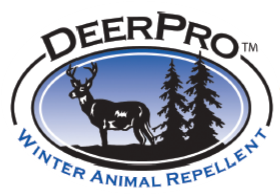11 Summer Lawn Care Tips

When thinking of summer we often think of relaxing and enjoying our home and lawn. The summer however, is the most stressful time of year for a lawn, it is brutally hot and very tough on your turf. Below are our 11 lawn care tips for the summer to keep your lawn healthy and green all season long.
Mow properly
Mowing at the proper height is essential. Mowing the turf high is best for the health of your grass and it is recommended to keep the grass cut at 3 – 3 ½ inches throughout the season. By keeping the grass taller, the lawn obtains more sunlight during the day which helps the grass produce food and energy. Keeping the grass tall also helps to shade the soil under the turf canopy, helping to keep the soil moist and reduce weed growth. Mowing too short weakens the turf which causes stress to the grass plant leading to drought stress, disease activity and permanent injury.
Sharpen mower blades
Have the mower blades sharpened regularly throughout the season. Keeping the blades razor sharp ensures that the grass is getting cut cleanly. When the blades are dull they rip or shred the grass blades which is harmful to the grass. This weakening of the turf can lead to drought stress, disease activity and even permanent injury. It is best to wash off your lawn equipment to avoid spreading disease to the turf the next time the lawn is mowed.
Leave grass clippings
Leave your grass clippings behind. By bagging your grass clippings, you are robbing your lawn of any extra nutrients that it can use throughout the summer months. Also leaving the clippings behind shades the soil, helping to maintain moisture.
Fertilize your lawn
Applying fertilizer in the summer gives your lawn nutrients on a regular basis and helps to keep it growing and healthy.
Properly water your lawn
It is recommended that a lawn be watered between 12 am and 6 am. An underground irrigation system should be run 1- 1 ½ hours per zone twice per week. Hose-end sprinklers should be run for 4 hours per zone once per week, both resulting in 1 inch of water on the lawn per week. Watering in the early evening (6 pm – 12 am) keeps the lawn wetter longer, which increases disease activity. Watering during the early morning hours reduces the amount of time your lawn is wet which minimizes disease activity. It also reduces water evaporation. Watering during the day (12 pm – 6 pm) is not beneficial to your lawn because most of the water being applied during the day evaporates by the sun and will not be utilized by the plant. Frequent and short watering causes a shallow root system which weakens the grass plants. Watering properly helps create a deeper, stronger root system which creates a healthier, greener lawn. Check out our blog article to learn more about watering your lawn.
Control lawn disease
If a disease outbreak does occur, a fungicide can be applied. A fungicide stops the further spreading of a disease to uninfected areas of the lawn for about 20-30 days depending on site conditions. If environmental conditions do not improve, multiple fungicides will be needed until the disease is in-active.
Control surface feeding insects
Surface feeding insects can cause substantial damage during the season. If the turf is struggling or weak, insects exploit that weakness and cause damage. Insect damage starts out looking like drought stress then gradually the turf thins and turns yellow. Insect controls should be applied when the insects are present. Additionally, insect damage can be permanent and seeding to repair the damage may be needed.
Apply a grub preventer
A grub preventer protects your lawn against grubs and the damage associated with them, which can be quite extensive. Grubs are the larva of beetles, and they chew off the roots close to the soil surface severing the plant from the roots. Signs of grub damage include; gradual thinning, yellowing, wilting and the appearance of scattered, irregular dead patches. The patches can increase in size and may join together to form larger areas of dead grass. Grub damage can be permanent and seeding to repair the damage may be needed. If interested in learning more about grubs and how to control them, check out a more indepth description here.
Control the weeds
Throughout the summer, weeds can become a major problem. They can be hand pulled or controlled using a more traditional method way, applying herbicide. Whatever method of control you choose, keeping the lawn weed free results in a healthy and great looking lawn. If you want to learn more about weed control, more information can be found here.
Clean up after your pet
Pet damage can kill off small portions of lawn wherever your pet relieves itself. Rinse the areas with water to flush out the pet’s urine in the soil. It is best to have your pet go onto a mulched area or a non-conspicuous area of the lawn. Pet damage at the end of the season needs to be repaired by seeding.
Seed the lawn
If at the end of the season your lawn is thin or bare from disease, insect, grub or pet damage, it is best to seed from the middle of August through the end of September. Seeding is the only way to reestablish grass in an area that has no grass or to fix any damage that has happened from the summer months. Make sure to purchase grass types appropriate to the location where the seeding is taking place, meaning if it is a shady area use shade tolerant grass types, if it’s in a sunny area use sun tolerant grass types.
These four steps below can help to make any seeding a successful seeding:
Step 1. Loosen the soil or add a layer of top soil to a 1 – 1 ½ inch depth.
Step 2. Apply the appropriate amount of grass seed. To find out what that may be, we recommend reading the label on the bag and consulting online research.
Step 3. Spread the grass seed and lightly mix the seed and loosened soil together (the more seed to soil contact the better the germination rate).
Step 4. Water, 20 minutes per zone twice per day for 6 – 8 weeks after seeding is completed to keep the soil moist.
Conclusion
There is nothing more important than good cultural practices. Summer lawn treatments can include proper watering, mowing, fertilizing and weed and insect control. These steps can keep your lawn healthy and beautiful all season long.
If you are looking for lawn service or have questions and are in our service area, give Fairway Green Inc. a call at 908-281-7888, we are happy to help.




